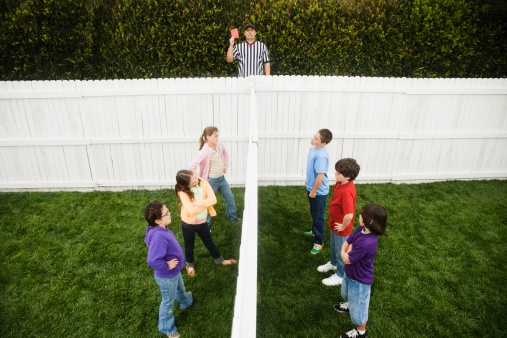 When you move into a new home or you welcome new neighbors into the homeowners association all you can do is hope for the best. Just like you don’t get to choose your parents, you usually don’t get to choose your neighbors either. When you’re a member of the HOA board, do you get involved when neighbors disagree or do you let them work it out themselves?
When you move into a new home or you welcome new neighbors into the homeowners association all you can do is hope for the best. Just like you don’t get to choose your parents, you usually don’t get to choose your neighbors either. When you’re a member of the HOA board, do you get involved when neighbors disagree or do you let them work it out themselves?
Neighbors may dispute for a number of reasons.
It could be excessive noise like a barking dog or mowing a lawn at 6 a.m. on a Saturday morning, yards that are not being kept up, or constantly blocking a driveway. For example, a homeowner in an Association contacted the manager because he was receiving a non-response from his neighbor. He asked his neighbor to trim trees that cast a shadow on the homeowner’s solar panels, and caused debris on his property. The neighbor’s trees were planted after the solar panels were installed.
Work it out!
Before moving forward, an HOA board should request that neighbor-to-neighbor disputes be worked out for a win-win for both parties without intervening. They are adults, boards shouldn’t be expected to babysit! When a neighbor-to-neighbor dispute possesses a health or safety issue, or in the case above interference with the functioning of solar panels, the Board may need to at least write a letter to the non-responsive homeowner to try and open communication between the neighbors.
Before contemplating action the HOA board should request the following documents:
- Original request for action.
- A short synopsis of the neighbor-to-neighbor dispute.
- Benefits to be achieved.
In any neighbor-to-neighbor dispute the proper authorities should be contacted prior to Board action, if appropriate (i.e., animal control, police, fire, adult protection services, etc.).
The governing documents should also be consulted because in many homeowners associations they cover neighbor-to-neighbor disputes, but in the solar panel situation only arbitration is covered under the governing documents in that particular Association. Simple neighbor-to-neighbor disputes are not covered. It benefits the Board to adopt a proactive policy to address the specific issue of handling neighbor-to-neighbor issues.
It’s also important to know that homeowners may choose to file a private right of action under Civil Code 5975 and recover attorney’s fees and cost as prevailing party.
With the help of an HOA management company, a Board should step in to open communication between neighbors when there is a simple dispute, not IDR (Internal Dispute Resolution).
Neighbors are meant to look our for each other. Hopefully, any disagreements between neighbors can be worked out amongst themselves, but if the HOA board does need to intervene, it’s important to have a process in place for doing so.

.jpg)








